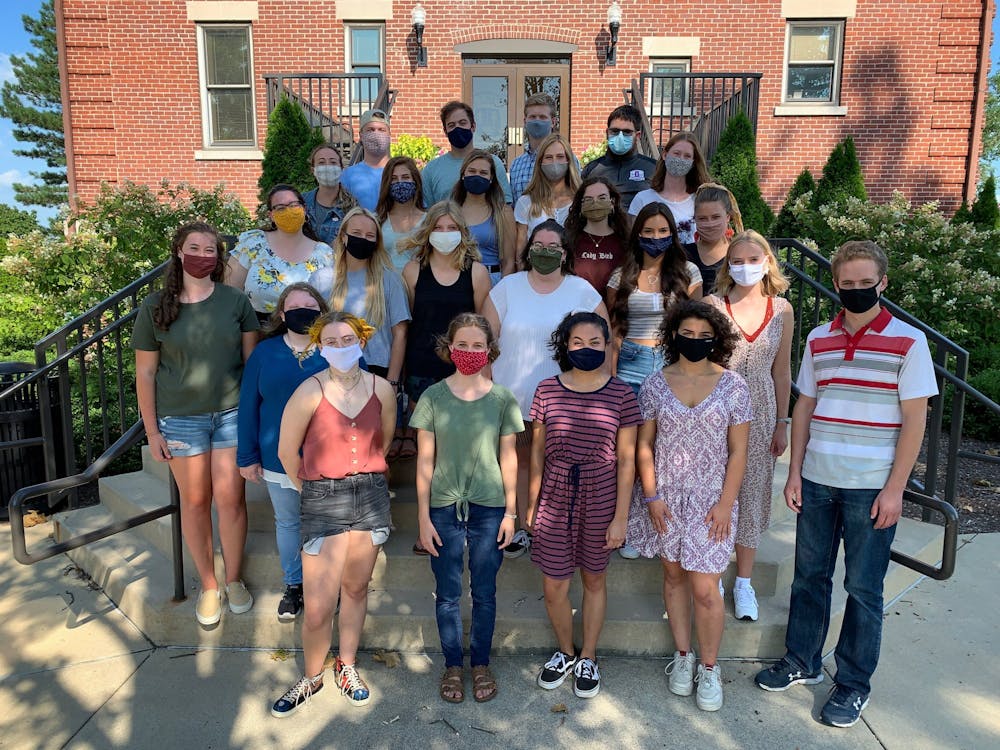When I was growing up, the phrase W.W.J.D (What would Jesus do) became popularized with it appearing on merchandise such as bracelets.
The bracelets came in a variety of colors and it wasn’t enough to have one, but multiple that you would wear on each wrist. My grandma’s neighbor and best friend ran a small daycare out of her home and decided to purchase some bracelets for her daycare kids.
As she was walking to her car, she saw that the bracelets were sitting in the basket and weren’t in a bag. As she checked her receipt, she realized that the cashier did not ring them up. She contemplated for a moment whether it was worth the walk back into the store to stand in line at the customer service desk to pay for the bracelets. No one would know that she hadn’t paid for them.
That’s when she looked down and read the phrase W.W.J.D. and instantly knew what she had to do. She turned her cart around and went inside to pay for the bracelets because that’s what Jesus would have done.
Why do I tell this story in an article about the importance of mask-s wearing and social distancing on Taylor’s campus?
Because we all need to be reminded that during this pandemic and very divisive times of what Jesus would do: love his neighbor. In Mark 12:28-34, Jesus is being tested and questioned about the most important of the commandments, in which he responds in lines 30-31, “Love the Lord your God with all your heart and with all your soul and with all your mind and with all your strength.’ 31 The second is this: ‘Love your neighbor as yourself.’ There is no commandment greater than these.”
Jesus regarded loving your neighbor to be as equally important as loving God that he mentioned them together as the greatest commandment. There are many other times throughout Scripture were it is emphasized to love our neighbor (Matthew 25:40,; Matthew 7:12,; Leviticus 19:18,; 1 John 4:21,; Romans 13:8-10,; 1 Peter 4:8,; John 15:12, etc.) to the point that it is crystal clear the importance of this command. So, how do we do love our neighbor during a pandemic?: Wwash our hands, wear a mask and social distance.
In the past 6 months, the variety of masks available have increased exponentially. They come in every color, pattern, size, and material that you can imagine.
The Center for Disease Control and Prevention (CDC) now recommends wearing a cloth mask for the general public, along with many states and businesses having mandatory requirements for wearing masks in public.
Yet, the question is raised: are they really effective?
COVID-19 is spread through droplets that are released from the body of an infected person into the air through talking, sneezing, and coughing (similarly to the flu.). An uninfected person breaths in these infected droplets and can become infected with the virus.
A mask acts as a physical barrier to prevent water droplets from being released into the air when talking, etc. and, therefore, prevents the spread of the virus to others. There are many factors that impact the effectiveness of masks: 1) the material it’s made from, 2) whether it’s being worn properly (fully covering the nose and mouth), 3) fitment (fits close to the face with no gaps), and 4) is it either disposed of or washed regularly after use.
While no face masks provides 100% efficiency at stopping droplets, it does greatly reduce the spread if used and worn correctly AND if compliance is high (https://files.fast.ai/papers/masks_lit_review.pdf). By you wearing a mask, you are protecting others from breathing in your potentially virus-containing droplets. This means if we all wear a mask properly, we should drastically reduce the spread of the virus.
Many times when discussing wearing masks the questions is raised, “Iif masks work so well, then why do we need social distancing?” Like I previously stated, masks are not 100% effective. We know that droplets from talking, etc. travel a distance of about 6 feet from the individual. Therefore, if we keep a distance of 6 ft.eet or more between individuals, we reduce the potential to come in contact with droplets, even if both individuals are not wearing a mask. Why would we wear a mask andAND social distance? For increased protection — : we are essentially doubling the protection from coming in contact with virus-containing droplets.
While I understand the controversy and divineness of views on this topic, let’s remember the true reason why we should follow these guidelines: to show love to one another. By wearing a mask, I am protecting my students from potential infection (even if I am not showing symptoms) and vice versa. I’m protecting my 80- year- old grandpa with Alzheimer’s and my immunocompromised friend. We are protecting our community in order to remain together on campus. It’s showing the love of Jesus to a chaotic world in need. Let’s simply remember W.W.J.D?




